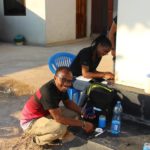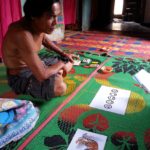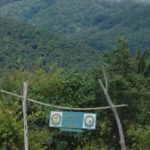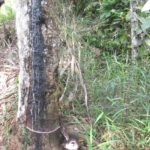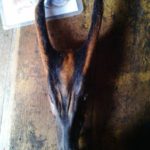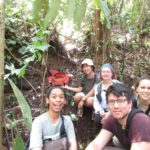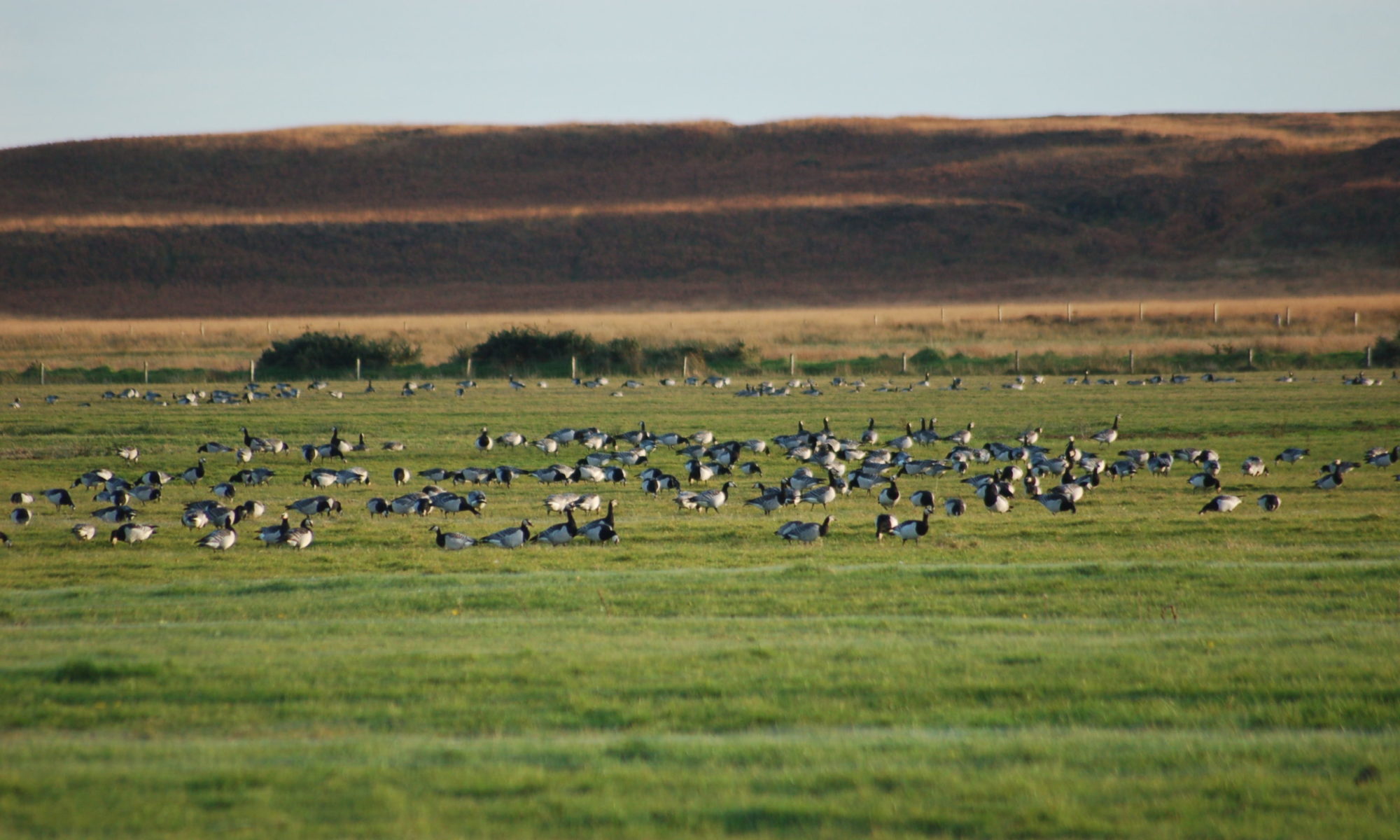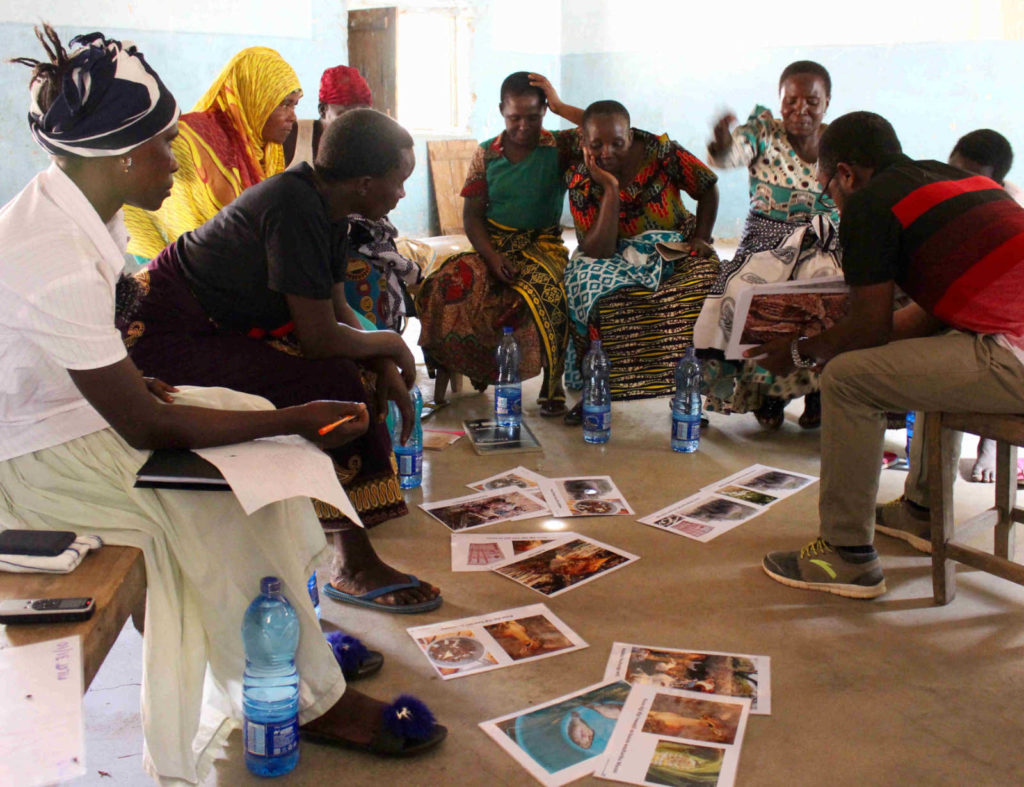
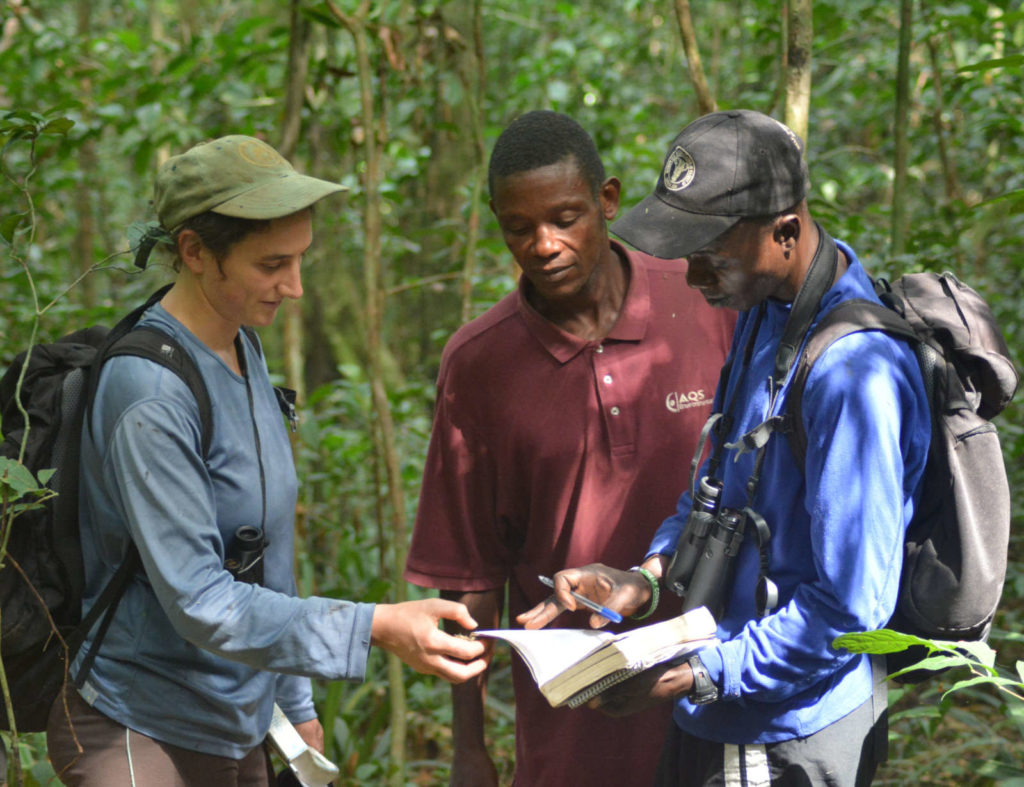

The ConHuB project
Poverty is frequently perceived to be the root cause of illegal natural resource use – the hunting or extraction of wildlife not sanctioned by the state. When unsustainable, such activities threaten conservation of ecosystems and endangered species. However, understanding what motivates individuals involved is a major challenge; understandably few are willing to discuss their motives for fear of punishment. Furthermore, severe, multifaceted poverty overlaps with regions prioritised for their globally important biodiversity. This association exacerbates the problem that illegal activities pose for policy makers responsible for managing and policing the use of nature. The dominant approach to conserving biodiversity is to establish protected areas that typically restrict resource use and manage infractions through law enforcement. However, the designation of such areas does not guarantee compliance, as demonstrated by ongoing infractions and its conspicuous profile on global policy agendas. This includes the 2030 Agenda for Sustainable Development that calls for urgent action to halt biodiversity loss and hunting of protected species. Solving this problematic cocktail of poverty, exclusion from resources and drivers of illegal resource use requires a new approach to understanding non-compliance. This project will draw on concepts from a range of disciplines, including development studies, criminology and psychology, to improve our understanding of why people break rules and to what extent poverty underpins their behaviour.
This project has received funding from the European Research Council under the European Union’s Horizon 2020 research and innovation programme (grant agreement No. 755965).
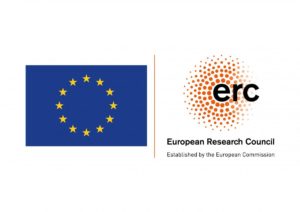
PhD projects
Poverty is frequently perceived to be the root cause of illegal natural resource use – the hunting or extraction of wildlife not sanctioned by the state. When unsustainable, such activities threaten conservation of ecosystems and endangered species. However, understanding what motivates individuals involved is a major challenge; understandably few are willing to discuss their motives for fear of punishment. Furthermore, severe, multifaceted poverty overlaps with regions prioritised for their globally important biodiversity. This association exacerbates the problem that illegal activities pose for policy makers responsible for managing and policing the use of nature. The dominant approach to conserving biodiversity is to establish protected areas that typically restrict resource use and manage infractions through law enforcement. However, the designation of such areas does not guarantee compliance, as demonstrated by ongoing infractions and its conspicuous profile on global policy agendas. This includes the 2030 Agenda for Sustainable Development that calls for urgent action to halt biodiversity loss and hunting of protected species. Solving this problematic cocktail of poverty, exclusion from resources and drivers of illegal resource use requires a new approach to understanding non-compliance. This project will draw on concepts from a range of disciplines, including development studies, criminology and psychology, to improve our understanding of why people break rules and to what extent poverty underpins their behaviour.
Supervisors: Freya St John & Julia P G Jones, School of Natural Sciences, Bangor University.
Funder: This project has received funding from the European Research Council under the European Union’s Horizon 2020 research and innovation programme (grant agreement No. 755965).

My PhD aims to investigate intertidal collection and beach gathering activities. At the moment there are at least 42 marine taxa collected from our Welsh shores, with uses from food, to fertilisers, to fuel. Surprisingly very little research has been undertaken into the social, heritage or economic value of collection activities to the UK, or the levels or impact of harvesting activity locally. Within my PhD I will be researching the non-monetary values associated with coastal activities, including wellbeing and heritage values; and teasing apart anthropogenic from natural impacts on the rocky shore.
Supervisors: Prof. Stuart Jenkins, School of Ocean Sciences & Dr Freya St John, School of Natural Sciences, Bangor University
Funder: Marine EcoSol and KESS 2.

Over-hunting is a major driver of biodiversity loss in tropical forests and threatens people’s food security and livelihoods. To address this problem and improve interventions that aim to reduce hunting, conservationists need to understand the backgrounds to this behaviour. My research takes a case study from the Gola Forest, Liberia, to explore ways to improve targeting and monitoring of hunting behaviour. Conservation tools are often developed using a one-size-fits-all approach. A better strategy, routinely used in marketing, may be to target specific groups of people. ‘Audience segmentation’ is the technique of subdividing a population into groups that share similar profiles, such as sociodemographic or behavioural characteristics, so that campaigns can be oriented to their needs and motivations. My research shows that this can be a useful approach for conservationists and explores how it may be improved by addressing issues of data quality in hunting studies.
First, I describe the hunting system from the perspective of hunters and traders, showing that groups differ substantially in their motivations and livelihood strategies. I then apply audience segmentation to define target groups, demonstrating this approach can be effective in applied conservation settings.
A crucial step to improve targeted interventions is monitoring behaviour change. However, this is challenging if activities are illegal or socially undesirable. The ‘bean method’ is a specialised questioning technique that encourages truthful reporting by preserving respondents’ anonymity. I apply this approach to assess behaviour change following hunting reduction interventions.
Information about hunters’ catch is useful to define target groups and for monitoring conservation impact, but can be prone to error from several sources. Finally, I assess relative bias of two common types of harvest data, showing results differed substantially according to how data were collected.
Quantifying the links between climate, indigenous culture, and biodiversity in the Pacaya-Samiria National Reserve, Peru.
Climate fluctuations in South America are affecting processes such as species distribution and composition, food production and water availability, which in turn affects local people. Observed climate change impacts within the Amazon include continuously dry conditions, increased forest fires, reduced humidity, intensified seasonality (flooding/droughts) and drastic changes in precipitation. These changes are likely to have a significant effect on the overall health of the ecosystem.
The study site, Pacaya-Samiria National Reserve, is located on the Amazon River in Northern Peru and is one of the largest protected areas in South America. Pacaya-Samiria Reserve is home to a myriad of threatened biodiversity and is one of the last remaining areas in South America where Cocama-Cocamilla Indians live. The reserve is co-managed by both Peruvian Government and Cocama indigenous people, yet there is a lack of focused research aiming to establish cause/effect relationships between observed outcomes and climatic drivers, including knock-on effects on local people.
Unlike most tropical forests, Pacaya-Samiria is relatively data rich. Project partner FundAmazonia has been monitoring this reserve and has provided the project with nearly 15 years of long-term biological and roughly 50 years of water level data. These longitudinal data, collected using consistent methods, represent a unique and rare opportunity to investigate the impacts of intensified seasonality on biodiversity through robust time-series analysis. However, these data reveal little about the dynamic between a changing climate, wildlife, and the Cocama people. Such insight is crucial given the close links between indigenous people and the nature within the reserve. This data gap will be addressed by conducting robust social science research, gathered directly from Cocama communities aiming to identify and quantify how Cocama people experience a changing climate. Combining these new social science data with existing biological longitudinal data will reveal dynamic interactions between people, biodiversity and a changing environment.
Supervisors: Simon Willcock & Freya St John, School of Natural Science, Bangor University.
Past projects
Funder: Darwin Initiative, 2016 – 2019
Team: Matthew Struebig (University of Kent), with Erik Meijaard (Borneo Futures), Freya St. John (Bangor University), Kerrie Wilson, Truly Santika & Rachel Friedman (University of Queensland), Ahmad Kusworo, Joseph Hutabarat & Tito Indrawan (Fauna and Flora International Indonesia programme)
Project Description: Community forest management (CFM) is championed as a way to benefit local livelihoods and forest conservation, and Indonesia recognises this as part of its efforts to reduce poverty. Growing decentralisation and policy reform now supports community-based management throughout Indonesia, where the government aims to reallocate 12.7 Mha of state forest to poor indigenous communities. While these reforms support human rights and could alleviate poverty, counter-intuitively they also allow communities to clear forest. The governments’ plan to improve rural wellbeing thus risks compromising the very ecosystems and biodiversity on which its people depend. By producing spatial datasets and developing case-studies within CFM areas, this project aims to assess the impact of CFM on wellbeing and build the capacity of local governments of Kalimantan to better incorporate environmental and developmental needs into their spatial land-use planning processes.
Selected publications:
Santika, T., Wilson, K. A., Budiharta, S., Kusworo, A., Meijaard, E., Law, E. A., Friedman, R., Hutabarat, J. A., Indrawan, T. P., St. John, F. A. V., Struebig, M. J. (2019). Heterogeneous
impacts of community forestry on forest conservation and poverty alleviation:
Evidence from Indonesia. People and Nature. 1, 204-219.

Funder: Natural England, 2017-2018
Team: Freya St. John & Gail Austen (Bangor University), Janna Steadman (University of Kent) and Steve M. Redpath (University of Aberdeen).
Project Description: For decades, a conflict has persisted in the English uplands between those working to conserve numbers of hen harriers (Circus cyaneus) and those maintaining commercial shooting of red grouse (Lagopus lagopus scoticus) with little sign of progress. Drawing on work conducted in social and environmental psychology, this project will investigate the attitudes and underlying values that hunters and conservationists hold that make it so hard to find shared solutions.
Funder: Natural England, 2017-2018
Team: Freya St. John & Gail Austen (Bangor University), Janna Steadman (University of Kent) and Steve M. Redpath (University of Aberdeen).
Project Description: For decades, a conflict has persisted in the English uplands between those working to conserve numbers of hen harriers (Circus cyaneus) and those maintaining commercial shooting of red grouse (Lagopus lagopus scoticus) with little sign of progress. Drawing on work conducted in social and environmental psychology, this project will investigate the attitudes and underlying values that hunters and conservationists hold that make it so hard to find shared solutions.
Selected publications:
St. John, F. A. V., Steadman, J., Austen, G., & Redpath, S. M. (2018). Value diversity and conservation conflict: Lessons from the management of red grouse and hen harriers in England. People and Nature. 1, 6-17.

Funder: Darwin Initiative, 2016 – 2019
Team: Mangara Silalahi (PT Reki), Tom Swinfield (RSPB), Rhett Harrison (ICRAF), Freya St. John (Bangor University) and Aidan Keane (University of Edinburgh).
Project Description: Much of Indonesia’s forest cover has been logged (>80M ha) yet studies have shown that exhausted logging concessions harbour high levels of biodiversity and supply valuable ecosystem services, consequently, their restoration is a conservation priority. 49 million people, among the poorest in the country, live on forest margins. With limited livelihood options, many depend on clearing forests for agriculture with the uncertain hope of attaining land tenure. Harapan Rainforest is an Ecosystem Restoration Concession in Sumatra which has a 90 year license to restore 98,000 ha of logged forest. With many indigenous and migrant families living within the concession and clearing land for agriculture, the situation at Harapan typifies the challenges facing forest restoration in Indonesia. This interdisciplinary project will examine the likely win-win scenario of agroforestry which has the potential to provide valuable livelihood opportunities consistent with restoration and biodiversity objectives.

Funder: University of Kent Faculty of Social Science, 2016 – 2017
Team: Freya St. John (University of Kent and University of Bangor) with Nils Bunnefeld (University of Stirling)
Project Description: Conflicts between those interested in using versus conserving biodiversity are widely recognised as both damaging to human livelihoods and biodiversity and are increasing in scope and scale. Yet, despite this recognition, there is a lack of theory to help guide the resolution of these problematic issues. The aim of this project is to develop a novel conceptual and analytical model to resolve conflicts over biodiversity conservation and human livelihoods. Working on the island of Islay, this project will investigate issues associated with the management of geese numbers which impose costs on the island’s farmers.
Funder: Leverhulme Trust, 2014 – 2017
Team: Freya St. John (University of Kent, University of Bangor) & Matthew Struebig (University of Kent), Matthew Linkie, Jeanne Mckay & Debbie Martyr (FFI-Indonesia Programme), Nigel Leader-Williams (Cambridge University).
Project Description: Large carnivores that cause loss of human life or livelihoods are frequently killed in retribution. However, religious or spiritual beliefs may encourage local tolerance of such conflicts. To date, conservation biologists and social scientists have not tested this aspect of human-wildlife conflict within a quantitative and interdisciplinary framework. A long-term case study of Sumatran tigers living close to Islamic farming communities allows us to explore both ecological and social determinants of such conflicts. Taken together, these data will provide timely insights into the drivers of tiger conflict, and allow us to better understand how to strengthen tolerance towards dangerous wildlife.
Selected publication:
St. John, F. A. V., Linkie, M., Martyr, D. J., Milliyanawati, B., McKay, J. E., Mangunjaya, Leader-Williams, N., F. M., Struebig, M. J. (2018). Intention to kill: Tolerance and illegal persecution of Sumatran tigers and sympatric species. Conservation Letters, e12451.
Struebig, M. J., Linkie, M., Deere, N. J., Martyr, D. J., Millyanawati, B., Faulkner, S. C., Le Comber, S. C., Mangunjaya, F. M., Leader-Williams, N., McKay, J. E. & St. John, F. A. V. (2018). Addressing
human-tiger conflict using socio-ecological information on tolerance and risk. Nature Communications, 9(1), 3455.
McKay, J. E., St. John, F. A. V., Harihar, A., Martyr, D., Leader-Williams, N., Milliyanawati, B., Agustin, I., Anggriawan, Y., Karlina, Kartika, E., Mangunjaya, F., Struebig, M. J. & Linkie, M. (2018). Tolerating tigers: Gaining local and spiritual perspectives on human-tiger interactions in Sumatra through rural community interviews. PLOS ONE, 13(11), e0201447.


